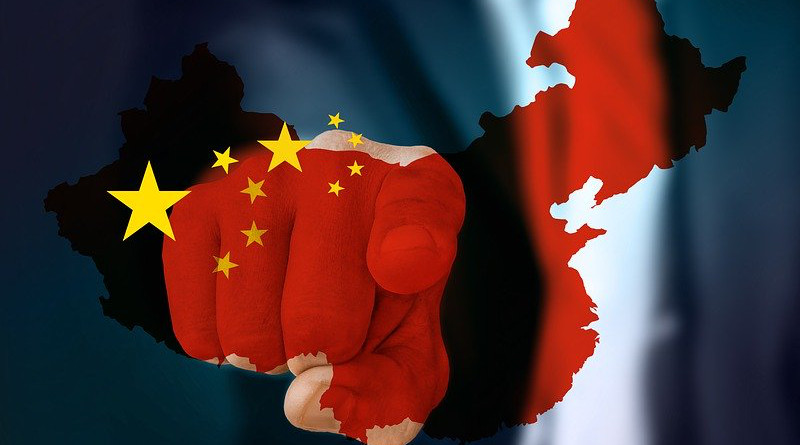China Tech Clampdown Expands Government Control Over Corporations, Data – OpEd
By Arab News
By Cornelia Meyer*
In a move that is about state control over corporations and data, the Chinese government last week started to clamp down on three tech companies: The ride-hailing app Didi, the world’s largest online freight platform, Full Truck Alliance, and the online recruitment firm Kanzhun, all of which had recently listed overseas IPOs in New York. Didi raised a record $4.4 billion, making it the second largest Chinese IPO in the US.
The three companies were ordered to halt new online registrations, while online app stores were no longer permitted to offer Didi.
The crackdown is all about state control over the 21st century’s most valuable commodity: Data. At first, the Cyberspace Administration of China cited concerns over individual privacy and national security as a justification for its recent actions. The latter was certainly exacerbated by the fact that the two biggest shareholders in Didi are SoftBank of Japan and Uber Technologies of the US.
Earlier this week, the State Council doubled down, warning it would tighten oversight over data and overseas listings without delineating specifics. A statement from top leaders merely highlighted that reforms would be “guided by Xi Jinping’s thought on socialism for a New Era.” The government is believed to be working on an outright blocking of Chinese companies from listing overseas.
Markets reacted sharply, with Didi’s American depository shares losing 20 percent or $15 billion. The shares now trade below the issuing price. The latest move threatens a $2.1 trillion market space of the nearly 250 Chinese companies that are listed on Wall Street. After the announcement that the Chinese were no longer permitted to download Didi’s app, SoftBank lost 5.4 percent on the Nikkei in Tokyo on Monday.
This most recent clampdown followed the thwarted IPO and subsequent clampdown of Jack Ma’s international payment platform Ant Group last November.
In the case of Ant, with its sprawling business reaching from online payment services, banking and wealth management to insurance, the focus of Chinese authorities was — on the surface at least — about financial stability and the state’s concerns over the concentration of power in one company in the fintech space.
It was also about the power accumulated by tech entrepreneurs and their companies, given valuations that, when combined, surpassed the largest state-owned enterprises in China. Alibaba’s $2.8 billion fine in April has to be seen in that context.
All in all, the government objects to the concentration of power in the hands of too few tech entrepreneurs and wants to assert control over the financial and technology sectors.
The clampdown also has to be seen in the context of the US-China competition over dominance of the tech space and concerns over national security in both countries.
Chinese corporations, investors and US exchanges have all benefited from Chinese companies launching IPOs in the US. However, over the past few years the going has become increasingly more difficult. There was the wariness over China’s rising economic power and concerns over national security in the US. As a direct result of the accounting scandal surrounding Chinese coffee company Luckin, US regulators demanded the right to scrutinize the audited accounts of US-listed Chinese companies or they would face delisting. Chinese authorities have banned this US regulation — resulting in contradicting guidelines on both sides of the Pacific.
This is only the most recent installment of China’s quest to assert control over its companies, both locally and internationally, while the US aspires to maintain a dominant position in the tech space. Watch this space!
• Cornelia Meyer is a Ph.D.-level economist with 30 years of experience in investment banking and industry. She is chairperson and CEO of business consultancy Meyer Resources.
Twitter: @MeyerResources

